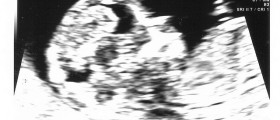Spotting is a term used to describe light or very light bleeding resembling menstrual flow. It is called that because it leaves stains on the underwear and because it is not consistent enough to be considered actual menstrual bleeding. It can occur before or after the period or anywhere between two periods. Sometimes spotting is a perfectly normal occurrence but sometimes it is a sign that something is wrong.
Normal and abnormal vaginal bleeding
Women normally have their menstrual period every twenty three to thirty five days. Menstrual bleeding is actually the shedding of the uterus lining called endometrium, which falls off and evacuates from the body because it does not contain a fertilized egg. In case of pregnancy, menstrual periods are absent because the endometrium is hosting the fertilized egg. A menstrual period marks the end of one reproductive cycle and the beginning of the next one. Bleeding can be light or heavy and last from two to ten days or more.
Abnormal vaginal bleeding is the bleeding that is not related to the reproductive cycle. It may come in form of spotting or as a heavy flow.
As for the treatment, even though sometimes spotting or bleeding after a period can be a perfectly normal thing, it is still better to see a doctor and check for any abnormalities.
Causes of spotting after period
Not every spotting after period is abnormal. For example, if spotting is in form of brownish discharge and it occurs a week after the period has ended, it probably means the uterus was not able to expel all of the tissue during the actual period.
Spotting after periods can also be caused by various hormonal imbalances. Another common reason is anxiety, stress or illness.
Certain medical conditions, like diabetes, thyroid problems and cancer, can cause spotting after or between periods. Some medications have the same effect too.
Spotting in the middle of the period, especially if it is very light and brownish in color, may actually be implantation bleeding, meaning that the fertilized egg got itself implanted in the endometrium. If the bleeding is heavy and accompanied by cramps and pain, it may be the sign of miscarriage.
Spotting can also be the sign of ovulation, especially if it occurs between the tenth and the nineteenth day of the period.
Sometimes if a woman starts taking oral contraception pills or stops taking them after a long period, it may cause spotting and light bleeding.

















Your thoughts on this
Loading...